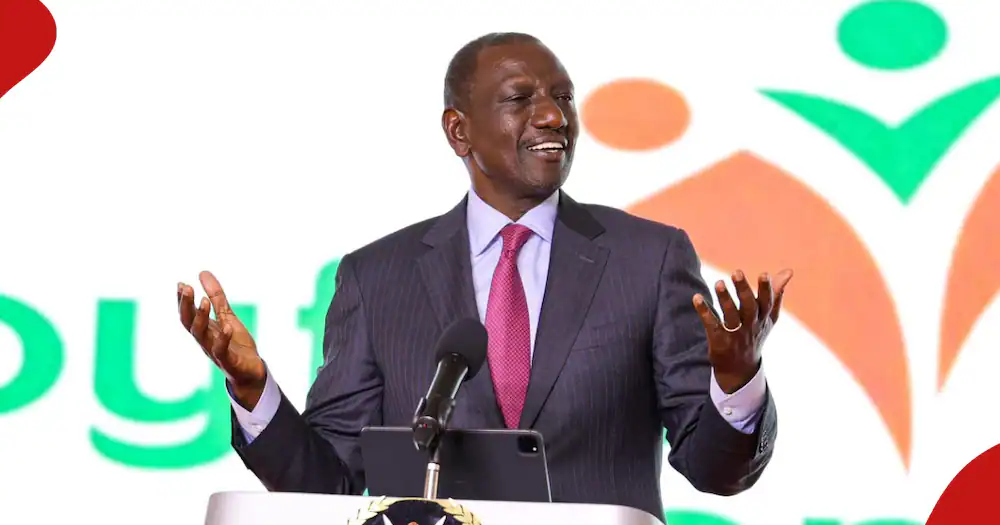Gov’t increases NSSF charges for Kenyans, effective February 2024

Kenyans will have to spend more money each month to cover the National Social Security Fund’s (NSSF) increased deductions.
The NSSF notified employers of the new fees in a notice on Friday. Kenyans will be required to pay between Ksh420 and Ksh1,740 starting with the February 2024 payroll.
This aligns with the Third Schedule of the NSSF Act Cap45 of 2013, which progressively increases the required pension contributions made by workers in accordance with their income thresholds. The employer matches this on an equal basis.
The Act states that during the first five years, the deductions will be increased to specified amounts. First-year mandatory contributions increased to 6% of an employee’s salary, from a flat rate of Ksh200 per employee to a graduated plan.
The deductions are based on two categories; the lower limit (Tier 1) and the upper limit (Tier 2). The upper earning limit is for employees who are earning above Ksh18,000 and above while the lower earning limit (considered the lowest pensionable salary) is for employees who earn below Ksh18,000.
According to the new rates, Tier 1 deductions will be based on the revised lower limit of Ksh7,000, up from the current Ksh6,000. This means that the deductions will go to Ksh420 from Ksh360.
Tier 2 deductions, on the other hand, have been raised to Ksh29,000 from the current Ksh18,000. This implies that workers will be required to pay Ksh1,740, up from Ksh1,080.
In both instances, the employers will be required to equally match the contributions.
Wondering about the new NSSF rates under the NSSF Act No.45 of 2023? We have broken it down for you. Have a look! #LeavingNoOneBehind pic.twitter.com/7saVdEgiWe
— NSSF_ke (@NSSF_ke) February 24, 2023
The new rates will take effect until January 2025, when the mandatory deductions will undergo another review.
“Remittances to the Fund should be made by the 9th day of each subsequent month. Employers should not hesitate to reach out to the Fund for any clarification. Our team is dedicated to supporting employers to attain compliance with the NSSF Act,” the notice read in part.
“The Fund wishes to thank all those Employers who have continued to remit the contributions of their workers since operationalization of the NSSF Act, 2013.”
The NSSF Act was initially set to take effect in 2014, but the process stalled owing to numerous cases that challenged the new mandatory contributions.
In September 2022, the Court of Appeal gave NSSF a new lease of life when they gave the green light for the new deductions to take effect.
Kenyans react to new NSSF rates:
Kenyans, who are already struggling with the rising cost of living, are uneasy about the announcement; some are calling on the government to make NSSF optional.
@groundedairhead: “Have you seen the NSSF one? Yaani nimechoka.”
@root48595317: “NSSF should be optional. There are many ways to invest for your retirement.”
@MunduWaAndu254: “Not only going up, but it’ll be twice the current contribution. To make it worse, in 2025 they’ll double the new figure, and when claiming your retirement contributions, you’ll only access 1/3 of your money. It is that bad!”
@mbithe_wabeekay: “This is sad, am being deducted NSSF money, which started recently in my pay slip yet I do not have an account with NSSF, Inaenda wapi?”
@Camundih: “Are we not already paying an increased NSSF since last year?”
@GodsChi29256224: “I contribute to a pension scheme at 6% deducted by my employer. Is it reasonably fair to also be subjected to a 6% NSSF contribution that I may follow up till death when I retire?”
@Its_FOoko: “NSSF rates set to rise by 6%. Itabidi tukate mti 2027.”
@Cliffe254_: “Kwani hii serikali inataka aje? 30% PAYE, 7.25% Provident fund, 1.5% Housing levy, 2.75% SHIF, 6% NSSF. Kwani Gava inataka ikate almost 50% what we earn? What kind of stealing is this?”
@elkanah_ke: “When I hear the implementation of NSSF ACT 2013 that will see a deduction of 6% of basic salaries, I feel discouraged. Many employees are servicing loans. Taking away 6% from their salaries will make them poor and unable to pay fees and feed families.”
@Elkanahkip58876: “Implementing the NSSF ACT 2013 which is lapsing this month, will render many Kenyans with negative payslips. If the Gok is sensitive enough, let him add salaries first before deduction. 6% of KSh 30,000 for example will see one parting with KSh 5,000.”

![Festus Makori and Jerica Muthoni. [Lilian Chepkoech]](https://mkenyaleo.co.ke/wp-content/uploads/2024/04/Q16uLG6Y0KB9b14AiLHv6W3TOXDWD0bftwRfm4YQ-220x150.jpg)








